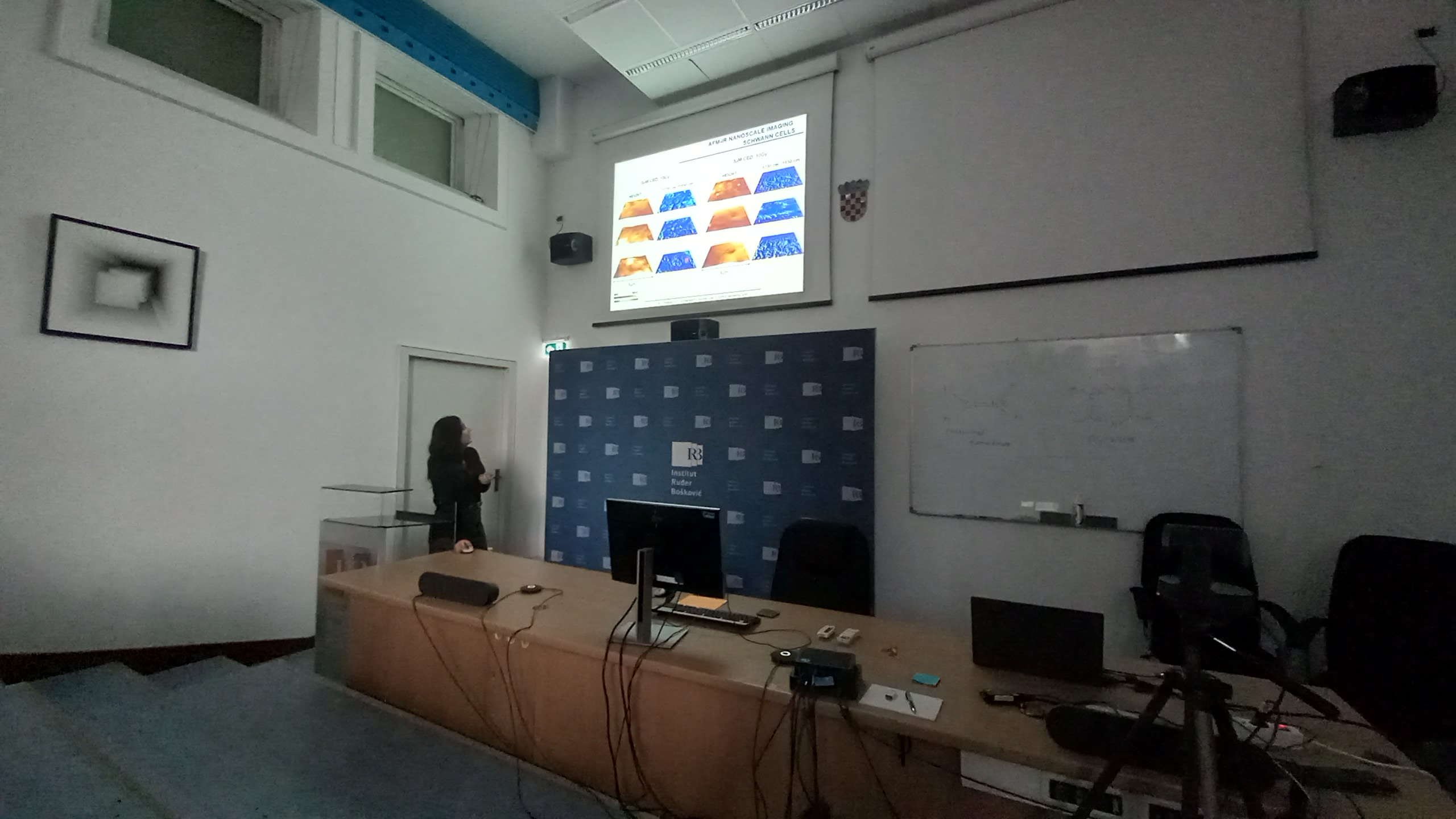Visit of collaborator Karolina Chrabaszcz

Through the funding assigned from the Program agreement of RBI and The Mininstry of science and education, Dr Karolina Chrabaszcz from the Institute of Nuclear Physics in Krakow (Poland) came to RBI for a one-month research stay. During her stay, Karolina learned the preparation and characterization of model membranes of healthy and tumor cells in the presence of cannabidiol, which helped in understanding of the data from her home institution. She taught her hosts about the application of chemometric tools in the processing of FTIR spectra. She also held a lecture titled "Cannabidiol's double role in tumor targeting and neuroprotection through spectroscopic eyes".
Abstract:
Cannabidiol (CBD) has emerged as a promising adjunct in cancer therapy due to its potent anti-inflammatory, neuroprotective, and antioxidant properties. While CBD’s efficacy in central nervous system tumors has been explored, its role in radiotherapy of peripheral nervous system (PNS) tumors remains unknown. Given the risks of stereotactic radiosurgery (STR), which targets tumors in challenging areas but can damage surrounding normal tissues and cause side effects, there is a critical need for supportive compounds that enhance tumor targeting while protecting adjacent healthy cells. In this study, we investigate CBD as a potential modulator in PNS radiotherapy, evaluating its influence on cancer and normal cell susceptibility to ionizing radiation. Through a comprehensive spectroscopic approach, including Raman, FT-IR, and AFM-IR imaging, we analyze CBD’s effects on biomolecular composition in both normal and cancerous PNS cell lines. These techniques provide valuable insights into biochemical changes associated with the proposed therapy. Using FT-IR and Raman hyperspectral imaging, we capture general biochemical shifts, notably in protein secondary structures (α-helices vs. β-sheets), DNA and lipid content. AFM-IR nanoscale spatial resolution enable a more precise examination of localized alterations, uncovering specific modifications in phosphate bands, and cholesteryl ester distributions within cells. These nanoscale findings underscore the molecular dynamics modulated by CBD and ionizing radiation, highlighting CBD’s potential role in altering cell morphology and enhancing selective radioprotection. Our results suggests that label-free spectroscopic imaging offers a rapid and effective approach to assess cellular response to radiotherapy, facilitating targeted treatment strategies for PNS tumors.

